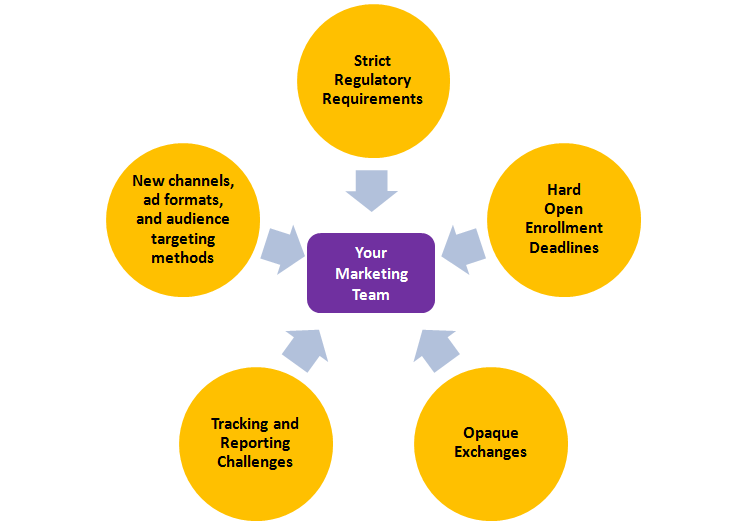Online marketing agencies are similar in many ways to more traditional advertising agencies, but there are four AdWords management pricing models they use:
– Percent of Spend
– Flat Fee
– Hourly Rate
– Performance Deals
Percent of Spend AdWords Management Pricing Model
For monthly media spends of $20,000 or more (let’s say for instance you are paying Google $20,000/month for AdWords clicks), 10% of spend is a very typical fee. Why a percent? Well, it helps align the effort put into the campaigns against the spend, and against the reward. If you’re spending $100,000/month but someone is only putting $2,000/month of effort into managing it – that’s not appropriate, and the performance of the campaigns will suffer.
Beware of Percentages besides 10%
I’ve seen AdWords management pricing fees as high as 12% but those usually involve some sort of deal between two close friends, one as the client and the other as the provider, and are in my opinion generally not in the best interest of the client’s company. If you put out an RFQ (request for quote – usually first you put out an RFP, request for proposals – then you combine elements of proposals and send it back out to everyone as an RFQ), you will inevitably get three types of bidders:
The Company that bids 10%
Most bids will come in here, and they are fair. I recommend you focus on these players.
The Company that bids 8%
The company is either desperate for the business, or you have a huge spend, so a slightly lower percentage is tolerable. You can go with the lower bidder but there is usually some risk involved. Another situation where an 8% fee makes sense is if you have been with an agency for a few years, and the effort level has reduced since campaigns are fairly mature, and the spend has grown significantly…often you can go to your agency and just negotiate a slightly lower percentage of media spend like 8%. This makes sense in a situation where you have to justify to your boss why you’re not putting the work out to bid, because you want to keep working with a great company.
There’s always some Joker that bids 6%
This is usually an agency which, up front (but they’ll never admit it), essentially plans to “cash your checks” and do as little as possible, focusing on reporting, and talking about doing things, but not actually doing much. Avoid these like the plague. Often one of these will pop up in the RFQ process; don’t torture the other bidders with this quote as it’s not a serious one worth considering.
Flat AdWords Management Pricing Fee
For spends under $20,000, a flat fee is customary. If it’s a very low spend of just $1-$5K you might see $500/month, but the most typical amounts I see people charging at the $5k-$20k level is either $1,500 or $1,750. Usually these include an up-front fee; developing campaigns is expensive work. $1,750 up front and $1,750/month is a pretty reasonable management fee, provided you have a “30 day out” and can fire the agency anytime; this way they are forced to “earn your business every month”.
Hourly AdWords Management Fee Rate
For very low spends, $5K and under, some consultants will charge an hourly fee, say of somewhere around $100-$150/hour. I am not a big fan of this approach, simply because taking the time to track and bill your work on an hourly basis actually increases bureaucratic overhead and reduces the amount of actual time you do “real” work on accounts. But for consultants getting their start, or someone doing this sort of work on the side, hourly (with some sort of monthly maximum number of hours specified) can work.
AdWords Performance Deals
These are pretty interesting, what they involve is the agency actually spending its *own* money on media and taking on the media risk. The way they work is, the client agrees to pay the agency some fixed number of dollars per lead, or a percentage of sales driven. Tracking obviously becomes extremely important for these deals – making sure URLs are tagged properly and everyone agrees to one measurement system is critical. The agency will usually *not* give the client insight into campaigns however; they may run creatives by them for approval, but as far as which keywords they are bidding on and how much they are paying, the client does not get visibility into that. This is essentially an arbitrage type situation, where the agency is generating (or even buying) the leads and selling them, and pocketing the difference. Sometimes you will see agencies take on deals like this and then only bid on the client’s brand terms – skimming sales at the lowest cost possible and not really adding any value. Any company can easily advertise on its own brand terms in a heartbeat, so making sure there is some early funnel value being added by the partner is important.
Of all the models, the Percent of Spend Seems Fairest
The goal in AdWords management pricing should be to align value delivered with effort expended with reward received. If any of these are out of whack, it can feel like an “unfair” deal for either the agency (who isn’t paid enough) or the client (who pays too much for what they get). The percent of spend model is a fair one and ensures a reasonable amount of effort is expended regardless of spend. It’s only at lower levels of spend where it breaks down really – there is a fixed cost to putting campaigns together usually, and with a low spend, just taking a percentage doesn’t make as much sense. That said, charging $1,750 for $5k-$20k spends usually gets you to somewhere around 15% or 20% of spend, which at a lower spend is pretty fair as well.
Regardless of which AdWords management fee pricing model you select with your agency – make sure you can fire them on 30 days notice – any agencies that try to lock you into 1-year contracts etc should be avoided, there is no reason to agree to those in this day and age with so many providers and so many different options out there.

Our CEOs Predictions for 2025 on SearchEngineLand
SearchEngineLand recently solicited 2025 predictions from various PPC experts; our CEO Ted Ives’ predictions are among them here (click on article below to read):


